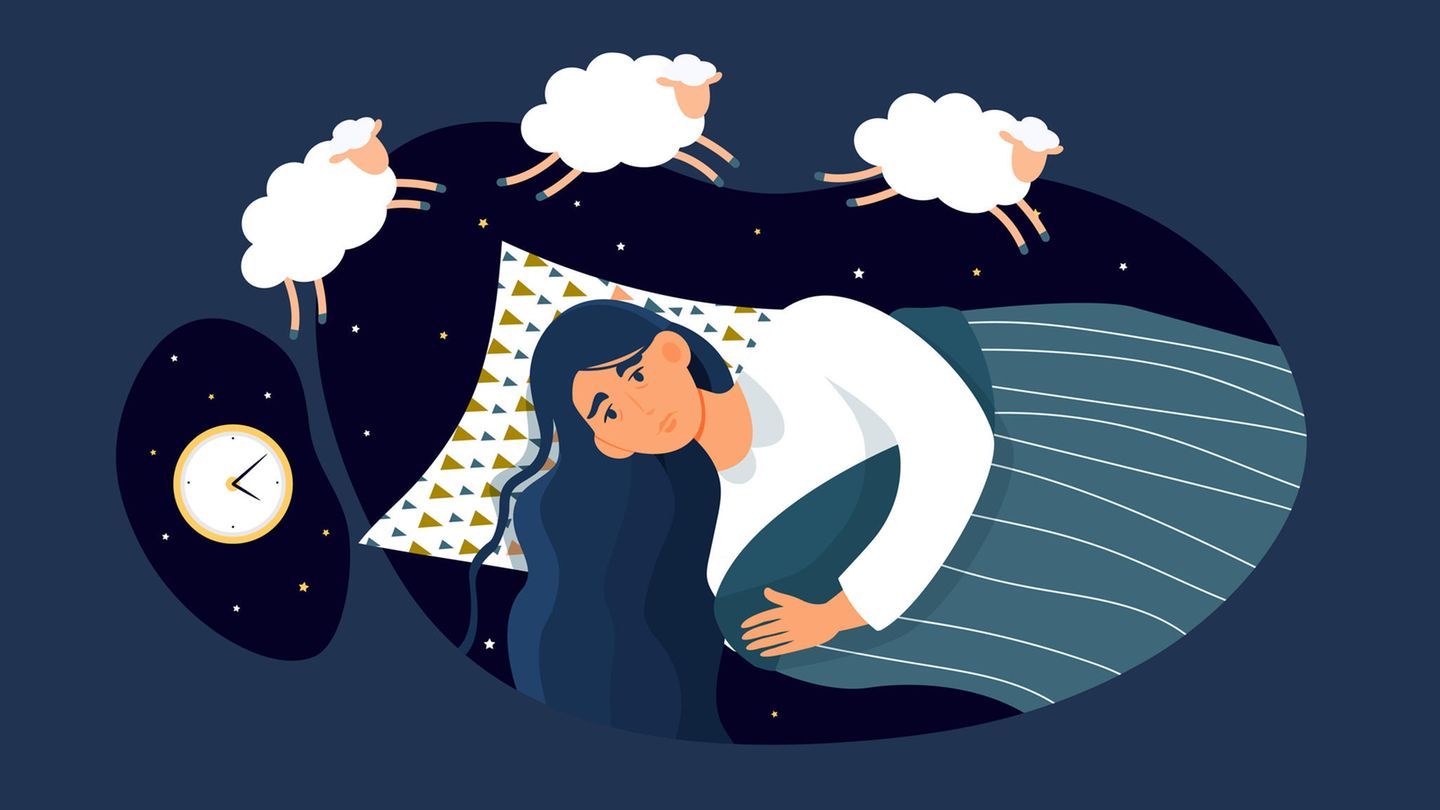The alarm goes off at 6 a.m., even if the night before was lousy. Anyone who suffers from sleep problems may have already counted sheep in order to finally be able to sleep. Why it is the even-toed ungulates of all things and how well the tip helps.
Were you unable to fall asleep again last night or lay awake in the middle of the night? You are not alone: 43 percent of Germans suffered from sleep problems in the last 12 months, according to the results of a survey by Statista. A common piece of advice: Anyone who has trouble falling asleep should count sheep in order to disappear into the land of dreams. But why actually?
Allegedly, shepherds who had been traveling for weeks without human company counted their flock of sheep in the evening – and they fell asleep. What is certain is that the idea is not new: as early as the 17th century, the shield cap Sancho Panza recommended his knight Don Quixote to count even-toed ungulates – here they are only goats, instead of sheep.
Counting sheep – does it work?
The idea behind counting sheep is to imagine the white balls of wool jumping over a fence one after the other. The monotonous and rhythmic activity is said to defeat insomnia. However, whether this will work is more than questionable. “Something as banal as counting sheep doesn’t usually help,” Allison Harvey, professor of psychology and director of the Golden Bear Sleep and Mood Research Clinic at the University of California, told CNN. She always works with her patients with sleep disorders to develop several options that can help them with sleep disorders. Because every person is different and not every method helps in every situation.
Anyone who searches online for studies on counting sheep as a sleep aid will quickly come across a study that Allison Harvey conducted more than 20 years ago. The study wasn’t about counting sheep, but about using images to combat insomnia, Harvey told CNN. In the study, 41 people with sleep problems were divided into three groups. One group was given no instructions on how to fall asleep. The second group was asked to distract themselves from worries in any way and the subjects in group three were instructed to engage in an interesting picture task. So imagine a waterfall or a beach.
The result: The picture group was able to fall asleep faster than the test subjects without instructions and those who were allowed to freely choose their distraction method. “Coincidentally, two of the study participants in the distraction group counted sheep to help them fall asleep,” Harvey told CNN. The expert says that even 20 years after the study, imagining images such as a meadow or a sunset is still a good sleep aid.
Sleep better
But there are other tips that help when sleep seems far away:
Prepare for the night during the day
Those who plan their daily routine skillfully can sleep better: “If I am physically active during the day, eat during the day, expose myself to a lot of daylight, meet up with friends, it helps my internal clock to understand where we are.” Routines and structure are good for the internal clock as our clock, said sleep researcher Christian Benedict in an interview with star. In addition, things should be quieter in the evening. So it’s better to do a hard workout in the morning rather than late in the evening.
Book instead of cell phone
If you can’t fall asleep or are sitting wide awake in bed in the middle of the night, you shouldn’t reach for your smartphone or turn on the TV. It’s also better to avoid news or bright lights if you want to get back to sleep. If the thought carousal gets going, it can help to get out of bed for a moment. Make yourself a cup of tea, read a book, listen to music or listen to a podcast – and when tiredness comes back, you should go back to bed, as Christian Benedict advised in an interview with star.
Establish habits
It’s good for our internal clock if we always go to bed and get up at the same time. This means the body knows exactly when it needs to produce the sleep hormone melatonin – and we get tired in good time.
You can find more tips here:
Sources: , ,
Source: Stern
I’m Caroline, a journalist and author for 24 Hours Worlds. I specialize in health-related news and stories, bringing real-world impact to readers across the globe. With my experience in journalism and writing in both print and online formats, I strive to provide reliable information that resonates with audiences from all walks of life.




